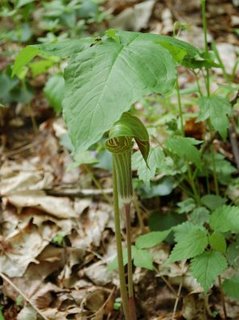
I mentioned Deliverance recently, in the context of entertainment suitable for discouraging unwanted tourism. I saw the movie when it first came out, but I'd not read James Dickey's novel until I found it at the local library book sale this past winter. I had started a blog entry about it, but soon realized it was too complex an issue for a short essay. I've been reading Dickey's poems, and some critical and biographical essays, and I'm quite intrigued.
Here's the passage that first caught my attention. Our narrator, Ed, is musing in the car as his buddy Lewis works out canoe trip logistics with the locals in Oree, their put-in point for canoeing the Cahulawassee river. Ed has already told us he is about 150 miles north of Atlanta, which puts him in the southernmost mountains of the Appalachians. (All the place names mentioned, except Atlanta, appear to be fictional.) Nothing bad has happened to Ed yet, but he has been ragging on rural Georgia for the previous twenty pages.
There is always something wrong with people in the country, I thought. In the comparatively few times I had ever been in the rural South I had been struck by the number of missing fingers. Offhand, I had counted around twenty, at least. There had also been several people with some form of crippling or twisting illness, and some blind or one-eyed. No adequate medical treatment, maybe. But there was something else. You'd think that farming was a healthy life, with fresh air and fresh food and plenty of exercise, but I never saw a farmer who didn't have something wrong with him, and most of the time obviously wrong; I never saw one who was physically powerful, either. Certainly there were none like Lewis. The work with the hands must be fantastically dangerous, in all that fresh air and sunshine, I thought: the catching of an arm in a tractor part somewhere off in the middle of a field where nothing happened but that the sun blazed back more fiercely down the open mouth of one's screams. And so many snakebites deep in the woods as one stepped over a rotten log, so many domestic animals suddenly turning and crushing one against the splintering side of a barn stall. I wanted none of it, and I didn't want to be around where it happened either. But I was there, and there was no way for me to escape, except by water, from the country of the nine-fingered people.
"Offhand," indeed. And, "no way to escape, except by water"--when he says this, he is sitting in a car in the county seat. It's not too late to find a pay phone and call his wife to come get him. This "country of the nine-fingered people" is not part of my space-time continuum.
3 comments:
According to his son, James Dickey was a compulsive liar. In the case of Deliverance (which i know only by reputation), I suppose this manifests itself in the hyperbole of passages like the one you quote.
A great poet, though.
I was wondering what you thought of his poems. I haven't read that many yet but I am very impressed by his descriptions of nature, which are in sharp contrast to his narrator's fear and loathing.
Interesting that you immediately brought up the "liar" issue. I'm sure Dickey is telling us from the beginning that our narrator, Ed, is a liar (and worse).
Ah, always . . . hmm . . . "interesting" to see Appalachia portrayed as an American Heart of Darkness. Of course, in all my days living there I have known only two people I can think of offhand missing digits not as a reminder of their service as a veteran - both involved lawnmowers. Oh, and one friend of mine was half blind - thanks to his dad being in contact with Agent Orange in another Heart of Darkness. Ah well.
Post a Comment